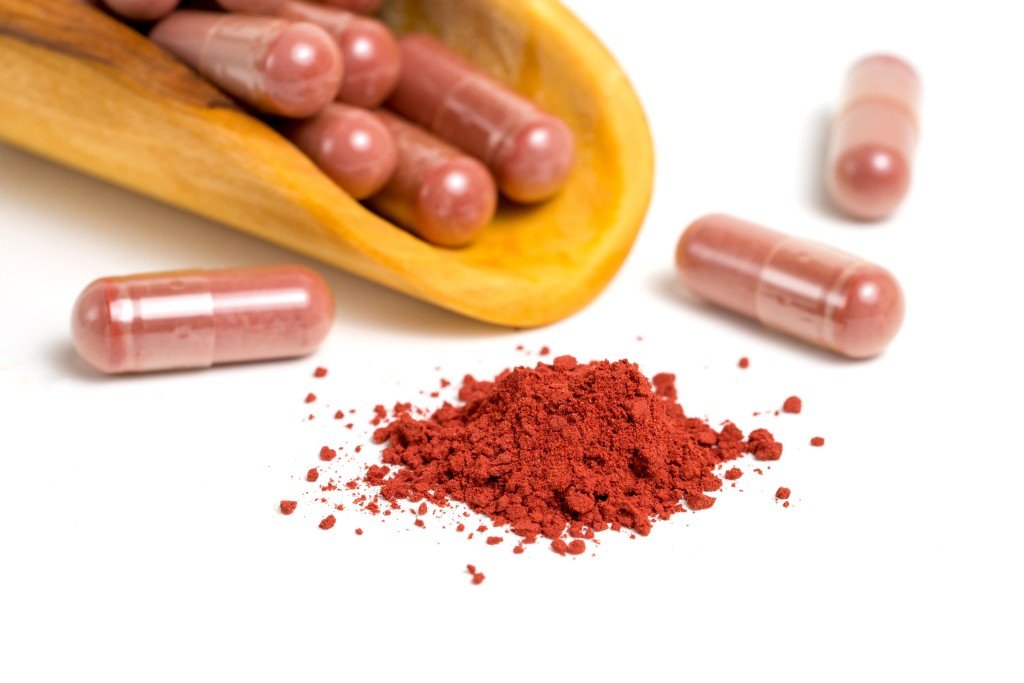Benefits of Red Yeast Rice for Cholesterol Management

Red yeast rice is a traditional Chinese fermented rice product that has gained attention for its potential benefits in managing cholesterol levels. It contains a natural compound called monacolin K, which is structurally identical to the prescription statin drug lovastatin. Red yeast rice has been used for centuries in Chinese cuisine and traditional medicine. In recent years, it has been studied for its cholesterol-lowering properties and its role in promoting heart health. This article delves into the potential benefits of red yeast rice and its considerations for use.
Understanding Red Yeast Rice: Red yeast rice is produced by fermenting rice with a specific strain of yeast called Monascus purpureus. During fermentation, monacolin K is formed, which inhibits an enzyme involved in cholesterol synthesis, leading to a reduction in LDL (low-density lipoprotein) cholesterol, often referred to as “bad” cholesterol. Red yeast rice also contains other compounds such as sterols, isoflavones, and monounsaturated fatty acids, which may contribute to its overall effects on cholesterol.
Cholesterol Management: High levels of LDL cholesterol in the bloodstream can increase the risk of cardiovascular diseases such as heart attacks and strokes. Reducing LDL cholesterol levels is a key aspect of cholesterol management. Statin drugs are commonly prescribed to lower cholesterol, and the monacolin K in red yeast rice acts similarly to lovastatin, a prescription statin. It inhibits the HMG-CoA reductase enzyme, which plays a role in cholesterol production in the liver.
Scientific Evidence: Several studies have investigated the effects of red yeast rice on cholesterol levels. A meta-analysis published in the American Journal of Cardiology reviewed 93 clinical trials and concluded that red yeast rice was associated with significant reductions in total cholesterol, LDL cholesterol, and triglycerides compared to placebo. However, it’s important to note that the concentration of monacolin K in red yeast rice supplements can vary, and not all products on the market may contain consistent amounts.
Potential Benefits:
- Cholesterol Reduction: The primary benefit of red yeast rice is its potential to lower LDL cholesterol levels. By inhibiting cholesterol synthesis, it may help reduce the risk of cardiovascular diseases associated with high cholesterol.
- Triglyceride Regulation: Red yeast rice has also shown potential in reducing triglyceride levels. High triglyceride levels are associated with an increased risk of heart disease, and by addressing this factor, red yeast rice may contribute to overall heart health.
- Antioxidant and Anti-inflammatory Effects: Some studies suggest that red yeast rice exhibits antioxidant and anti-inflammatory properties. These effects may help protect the cardiovascular system by reducing oxidative stress and inflammation.
Considerations and Precautions:
- Quality and Standardization: When considering red yeast rice supplements, it’s crucial to choose reputable brands that ensure quality, purity, and standardization. This is important because the concentration of monacolin K can vary among different products.
- Medical Supervision: Red yeast rice should be used under medical supervision, especially if you have existing liver conditions, are taking other medications, or have a history of muscle-related side effects from statins. Regular monitoring of liver function and muscle enzymes is advisable.
- Dietary and Lifestyle Factors: Red yeast rice should not replace lifestyle modifications such as a healthy diet, regular exercise, smoking cessation, and weight management. These factors play a significant role in managing cholesterol levels and overall heart health.
Red yeast rice has been studied for its potential benefits in managing cholesterol levels and promoting heart health. Its active compound, monacolin K, inhibits cholesterol synthesis, leading to reductions in LDL cholesterol. While red yeast rice shows promise, it should be used under medical supervision, and individuals should consult with healthcare professionals to ensure its appropriateness, especially when considering existing health conditions and medication regimens. Lifestyle modifications and prescribed medications, when necessary, should not be disregarded in favor of red yeast rice supplements alone.
Disclaimer: This article is for informational purposes only and should not be considered as medical advice. Consult a healthcare professional for personalized guidance and recommendations based on your specific circumstances.





